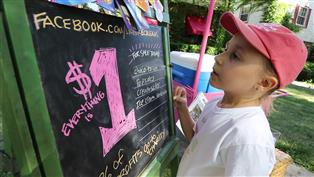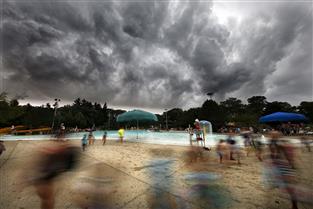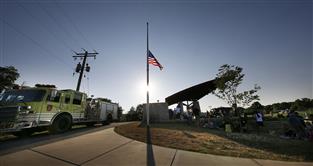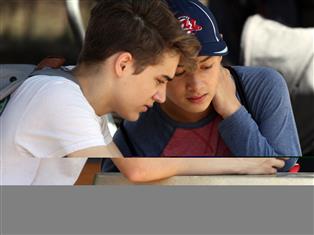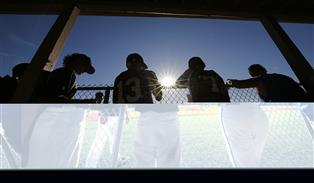Tosa West, East to compete in national We the People competition
Both schools will head to the nation's capital to test their knowledge of the constitution
Both Wauwatosa High Schools will send Junior classes to Washington D.C. test their constitutional knowledge in the We the People competition.
Each state will send one representative to the April 26 competition, but since Wisconsin drew the wild card, they can send two. Wauwatosa West won first place in the state competition held at Marquette Law School, while East won second, allowing each school to advance.
The competition is broken into six areas of constitutional knowledge and judged by lawyers, scholars and law professionals. The six units could range from revolutionary history knowledge to executive powers to modern citizenship.
Each school divides their teams into six groups that will prepare three statements based on questions pertaining to each unit. They will then answer questions from the judges. They are scored on a composite of the statements and answers.
A tradition of excellence
Wauwatosa has had schools win over half of the state We the People competitions over the past 26-years of state involvement. East began participating in the competition before West, with strong representation at the state level. Since West's participation in 2008, however, they have won every state competition.
West has also placed in the top ten nationally.
Gearing up
Both schools tackle the competition much like an NFL team would tackle the road to the Super Bowl. Wauwatosa East hosts a preseason, districtwide competition. Both schools then decide on which group they will assign students to based on their skills.
The schools are currently shifting positions again after the state competition to maximize their chances of winning nationals.
"Think about it as football," said Elaina Meier, the Wauwatosa East teacher overseeing the We the People group. "All the athletes on the team are going to have a certain baseline skill level in terms of their mastery of certain skills and so we can look at the We The People text and our curriculum and we all have baseline mastery on that. We're then going to dive in and be position specialists on certain areas."
Much like football, it's what goes on between competitions that counts for these students.
East and West constantly hold "dry runs," which are essentially scrimmage games. Instead of passing and running, however, these students are learning reasoning and contextualizing questions to the constitution, government framework and history.
Recalling the hundreds of hours she put into practice, West student Emily Schaefer said she is constantly thinking about political issues.
"Even listening to the news, you hear the things that they're talking about and you understand the phrases," she said. "I know what a filibuster means now after taking this class."
Each team gets help from the locals as well. East and West students have enlisted the help of attorneys, alumni, parents and local government members to forge their civic understanding and prepare them for the competition.
The teams also have to mesh together schedules, understand how to work together and sometimes prepare statements that they don't agree with. The important thing, they say, is that they understand the argument.
West student Will Darling said that his participation taught him the value of putting in hours after school. He said the class helped pick his grades up and added to his ability to contribute to a group.
Strengthening engagement
Since their involvement with the competition, civic engagement has become a part of the participating students' lives. They say now when they watch the news, they think of how it applies to the constitution.
East student Dana Strothenke recalled checking her news feeds at lunch during the state competition.
"A lot of current issues have applications to a lot of different units," she said. "It's important to think about how it applies to your unit and how you can use it in Q and A or in your statements."
"That's the basis for the constitution," East student Maddie Willinski added.
Both students agreed that "everything applies to everything."
"You just need to know when to apply it and how much," Strothenke said.
Opinions from both schools differ as to whether the We the People participants are alone in their civic engagement.
West students lamented their peers' angst toward political news.
Meier believes that students innately care about their government, whether they know it or not.
"I think they care more than what they realize and the challenge is for us as a society to hear them," she said. "That's the beauty of this program. It says 'We want to hear. We want to know what you think on these issues.'"
More from News and Features
- Anodyne Coffee plans to open location in Wauwatosa Village
- Wauwatosa Meetings: Aug. 4
- Video: Wauwatosa girl's curbside ice cream stand raises money for the hungry
- Wauwatosa News and Notes: Hands-only CPR training offered; Firefly Art Fair is Aug. 6-7
- Wauwatosa Ask Now: Why are there barriers and fencing along the North Avenue bridges over the Menomonee River?
- Mystery Photo Contest: July 28
- Wauwatosa gears up for National Night Out event, this year at the zoo
- Election 2016: Wisconsin's 4th District candidates weigh in
- Wauwatosa's Luther Manor residents share smiles through flower delivery
- Wauwatosa Police Report: July 17-23







